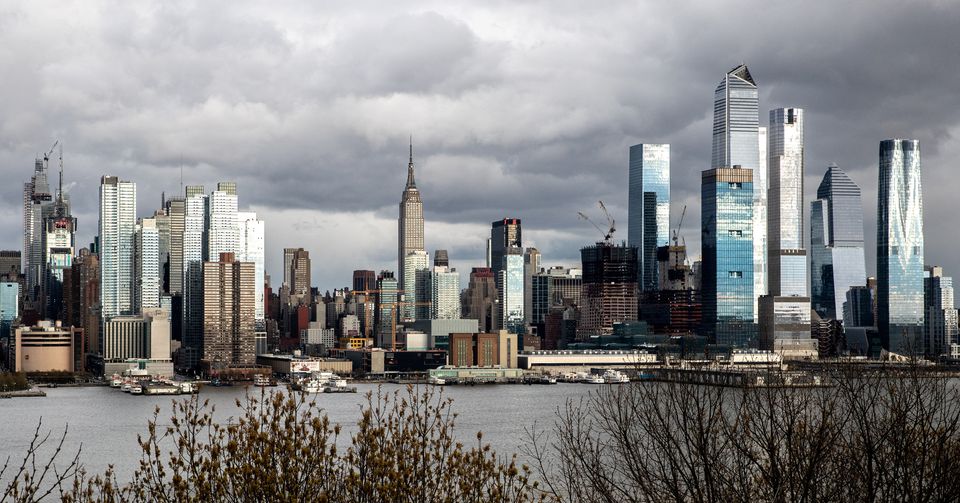Advertisement
What's A Financial Hub
Oct 04, 2024 By Kelly Walker
A financial hub, or financial center as defined by the International Monetary Fund (IMF), is a municipality or metropolitan area home to numerous and diverse financial services organizations. The Hub metaphor compares the financial services sector to a wheel with a hub and spokes.
The wheel's hub is the focal point of the mechanism since it is where the axle meets the spokes. To the same extent, the cities or areas that host an economy's financial services are known as "financial centers" because of their significance to such economies.
Recognizing A Financial Center

Most countries have significant centers of finance. For instance, most of France's leading financial institutions and the country's largest stock market, Euronext Paris, are located in the French capital.
Yet there are also worldwide financial centers that function as the most important financial centers for regional economies. London is an excellent example of a financial center because it is Europe's leading financial center. Other significant international finance centers include Singapore, Hong Kong, Tokyo, and New York City.
Reasons For The Existence of Economic Centers
Economists have used cluster theory to explain why so many financial services companies exist in one place. According to cluster theory, firms within an industry gain from co-locating in the exact location since hiring qualified people in an area where industries are concentrated is more straightforward. For example, it would be easier for one worker to resign from their job at one business to work at another firm if they didn't have to make a big move to do so.
How Can a City Become a Financial Center?
A financial center, or financial hub, is a city that combines a favorable geographic position with a high concentration of public and private banks, trading and insurance firms, and reputable stock exchanges.
In addition, these centers are equipped with the first infrastructure, telecommunication and commercial systems, and a stable political system underpins a clean and sound legal and regulatory environment. These locations attract skilled workers because of the excellent quality of life and the numerous career advancement possibilities they provide.
Principal Financial Centers Throughout the Globe

London
London has been a central financial and commercial hub since the Middle Ages. This city ranks high on the ideal locations for conducting business and receiving visitors. London is a well-known center for foreign currency and bond trading, banking activity, and insurance services.
Bonds, futures contracts, foreign currency markets, and insurance policies are all traded heavily in this metropolis. The Bank of England, the central bank of the United Kingdom, is based in London and is the world's second-oldest central bank. The bank oversees the UK's monetary policy and supervises the creation of new banknotes.
Singapore
Singapore's open and robust legal structure, along with the country's economic and political stability, makes it a desirable location for doing business. The once-modest Southeast Asian island is now a thriving economic powerhouse and one of the Four Asian Tigers.
Despite its small size and scarce resources, Singapore's economy has been revolutionized despite the challenges posed by its small size. Industries in Singapore range from chemicals and biomedical research to the petroleum refining, mechanical engineering, and electronics.
Zurich
The Swiss capital and largest city, Zurich, is often considered a central international financial hub. The city has become a center for insurance and asset management businesses and has a disproportionately high concentration of financial institutions and banks.
Because of its favorable tax climate, Zurich is home to many multinational corporations. SIX Swiss Exchange, Switzerland's principal stock exchange, is located in Zurich and is one of the world's largest stock exchanges, with a market capitalization of $1.4 trillion as of July 2021.
The city boasts a thriving economy and various finance-related career opportunities. Zurich is a new city with low rates of crime and stunning scenery.
New York City
The Global Financial Centres Index placed New York, the world's finance hub, top among the world's financial centers. Wall Street is the center of the financial world, and the New York Stock Exchange is the largest in the world.
The city's population and workforce are both reflected in the city's cultural mosaic. It is home to the world's largest and best-known corporations, financial institutions, and manufacturing firms.
Hong Kong
Several banks in Hong Kong make it an important financial center. As a result of its stable legal system, the former British colony is now home to several investment management firms.
Strategic positioning has been beneficial to Hong Kong. For almost a hundred years, this city has been a hub for business between China and the rest of the globe. The United States is China's most significant trading partner, although Hong Kong is a close second.
Advertisement

Interest In Capitalization: What It Is, How It Operates, and a Sample

What You Need To Know Before Investing in Domain Names?

A Comprehensive Guide to Selling Stock in Your Company

Best Auto Loan Rates and Lenders

The Ins and Outs of Revolving Credit: What You Need to Know

Everything You Should Know About Mechanical Investing

Unlocking Off-Premise Banking: A New Horizon for Financial Services

Why The Profit Boom Fueling Stocks Is a Mirage

Best Call Center Services for 2023.

